In a market where consumers still lament a perceived lack of AAA VR titles, last year's Resident Evil 4 was a welcome shot in the arm. Released in October, it was a complete reworking of an all-time classic game featuring a full campaign in the region of 16 hours to complete.
Six months later and developers Armature Studio are back with a free update - fan favourite Mercenaries mode - as featured heavily in the Meta Quest Gaming Showcase 2022. [See our interview with Meta's VP Metaverse Content Jason Rubin here.]
We spoke with Tom Ivey, the game's lead producer about what to expect from the new mode, the responsibility of updating such a venerated title and lessons learned in developing for VR.
Q: Congratulations on creating a VR version of an all-time classic that not only pleased newcomers, but also gave franchise veterans a genuinely new way to enjoy an old favourite. To paraphrase an old quote, 'You can't please all of the people all of the time', and yet… somehow you seem to have managed it! What's your secret?
A: The franchise is very important to us. A lot of us have very important memories playing the original version of the game on GameCube and always had it as one of our favourite games. So the ability to work on that franchise and work with the people at Capcom was a big deal for us. So we wanted to make sure that we did everything we could to make the best product that we could.
And that does mean both presenting the original aspects of the game on the new platform, as well as bringing the VR aspects to it in terms of gunplay and movement and controllers, but also a lot of little subtle things that make that work as well.
I don't know that we got everybody on our side, but we were overwhelmed by the response from people and very happy that we were able to hold up a good version of the game. It meant a lot to us.
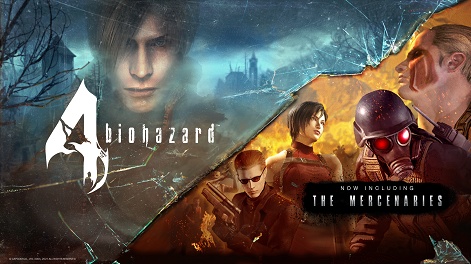
Resident Evil is a polished game and it's not just about the story or the characters; it's the gameplay. If you get that wrong, then it doesn't matter if all the classic features are perfectly polished and they're all in there, because it's just not going to be fun to play.Tom Ivey
Q: Resident Evil fans can be a rabid bunch. Mercenaries fans even more so! How did you go about satisfying a fanbase that's so hard to please?
A: I think it starts with just making sure the core experience in VR is solid.
Resident Evil is a polished game and it's not just about the story - which is a huge deal to a lot of people - or the characters; it's the gameplay. It definitely revolutionised and pushed forward gameplay at the time in terms of the controls, the camera perspective and a lot of things that they did with the action.
So we wanted to do the same thing with the VR version of trying to make sure it was best in class in terms of the presentation and the feel. If you get that wrong, then it doesn't matter if all the classic features are perfectly polished and they're all in there, because it's just not going to be fun to play. You've ruined that aspect of the game.
So that's how we started out; making sure from day one that the core experience that you're going to be doing for the whole time - working with the guns and working with movement - was as polished as possible, before we worked on anything else.
Q: The Mercenaries mode goes all the way back to the last century. What kind of pressure did you feel to honour that heritage and how did you go about it? And did you feel obliged to replicate the mode from RE4 or were you free to incorporate other variations for this VR version as a ground-up reimagining?
A: As we were working on the story campaign, which was our first focus, we were seeing how the gunplay felt and imagining, 'How is this going to be in Mercenaries? It's gonna be so much fun!'
And then we saw all the videos that people were producing in terms of doing these crazy moves while playing in the story campaign. We were getting even more pumped working on Mercenaries, which has more enemies and it's more action-packed than the story campaign. How are they gonna translate what they're doing and all this cool stuff to pulling off amazing moves in this mode?
It felt like a natural fit once we had locked in the player package. We knew it was going to be even more responsive and exciting because of what you could pull off. So at that point we were like - just like the main game - what can we do to magnify the strengths of Mercenaries?
We started with RE4 Mercenaries. We put that in a contained area called Classic Mode, where you'll play as it was in RE4; same characters, same levels. We changed the scores because it's a little bit easier with our movement package, two weapons and shooting and strafing at the same time to get higher scores.
Then we wanted to take the fundamental core of Mercenaries - how it structured this timed mode, where you're taking out enemies for score and there's combos - and let's put twists on it. And that's how we came up with Challenge Mode, which is kind of the extension.
It's 20 unique takes on the main structure. It might be new weapons that you can use, or new enemies, or changes to the map, or complete rule changes. We have multiple challenges that fundamentally change the rules so that it plays differently to give you a new and exciting twist.
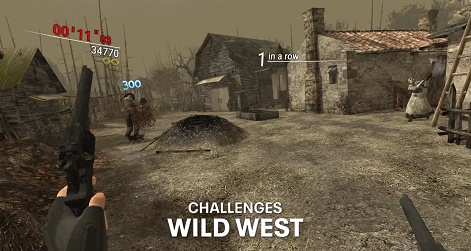
We thought we had a strong product but getting it in people's hands, getting their opinions and seeing if they feel the same way was just fun and exciting.Tom Ivey
Q: You describe seeing it almost come to life in the hands of the players. How did that feel after two years of development?
A: It was really exciting because seeing that people were enjoying it. We thought we had a strong product but getting it in people's hands, getting their opinions and seeing if they feel the same way. It was just fun and exciting. It was really great to see the game and to see what people were producing using what we had done.
Q: What are you most excited for the players to experience for the first time in the new Mercenaries mode?
A: We're definitely excited to see the scores, the tricks they do and see what they think about the challenges. Our QA team had scores and they're really good at the game, but we know that the scores can be higher and I'm curious to see how much higher - and how they do it!
We have these new unlockables, so you complete challenges and we give you costumes and guns, but we also added enhanced modes. You can play through the story mode in a different way. One is classic horror mode and gives a black and white film grain. Another one is fast forward mode and I'm sure there'll be a whole speed run.
But for me, Big Head mode is in there, like all the Ganados and Ashley have oversized heads. And every time I load it up, it tickles me and I'm really curious to see what people do, especially in combination with other modes and the memification that comes out of it.
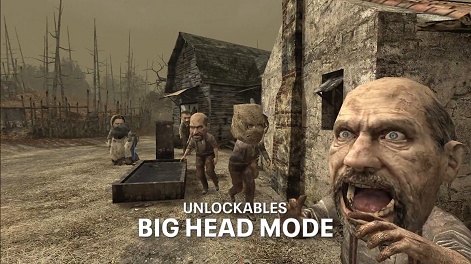
We have a lot of achievements or unlocks that you can get playing the mode, but it means that you can go back and play the story mode with any combination of these options. So it's gonna give people another interesting way to play the game and I'm curious to see what comes out of those.
Some of this does not age well and that is about bringing Resident Evil into the year 2022. That's when this thing is published. And so we worked on that and we feel that it's the right way to produce the game in the year that we're playing it.Tom Ivey
Q: There were some vocal detractors about changes to the game ahead of RE4's VR release. What's your take on your role as conservators versus making anew?
A: Capcom was very open to saying, 'Hey, whatever it is, if it's fun, then let's do it!' There were obviously limitations like you can't have Leon with a rocket launcher arm or something ridiculous.
In terms of additional content, it's the year 2022. And some of this does not age well and that is about bringing Resident Evil into the year 2022. That's when this thing is published; that's where we're at. And some of it just is not intrinsic to the story of the game or the characters. And so we worked with them on that and we feel that it's the right way to produce the game in the year that we're playing it.
Q: It's well documented that the physicality of RE4 was important for the VR version. What did you learn developing that game that you will apply to future VR titles?
A: This has been a path from when our studio first started working in VR where we've kind of learned each time. We started with a game called Fail Factory which was a single position, all in one place. The next game was Sports Scramble that took us into the room scale, movement in the environment and more physical representations of objects in your hands.
So we learned how to get a good feel for grabbing something and swinging it, making contact. Sometimes faking things to make them feel better; how you think they should feel versus physically moving this thing.
And RE4 was a step up from that. When we were first bringing guns on, a lot of the stuff came from Sports Scramble in terms of the basic concept of holding something, but then manipulating those items and getting the hands in a socketed system so that they're playing animations and smoothly transitioning.
This is the first game we're working on where you're moving through a world, the navigation of how you move when you use the analogue stick, vignetting the screen when you're moving, adding a teleport mode and making sure that's just as competitive in terms of playing the game. That was the next step of the mobility of this game.
We always try and learn and carry those things forward so when we start the next thing, we're not starting from scratch. It's a big deal and it goes for everything from how we work on the engines to anything with art and we try to carry forward as many lessons as possible so we can be concentrating on like the fun game part of it and making sure the game is as polished instead of beating ourselves up against technical issues that we've solved before.
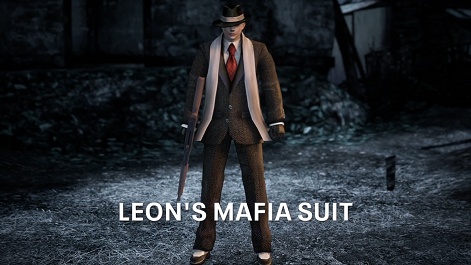
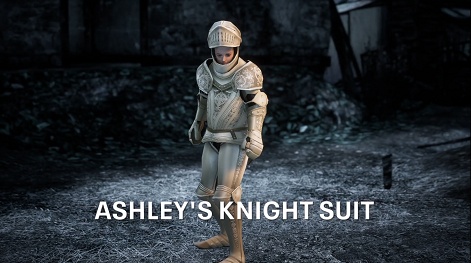
I'm a big proponent of accessibility options. It's a big deal and I think VR has a whole heap of new challenges in that area. It's a complex problem and I'm sure people way smarter than me are working on it, but I'm very curious to see how that goes in the future and how we can use it in our games.Tom Ivey
Q: Was there anything you learned that surprised you?
There were some very subtle things that Oculus is doing just on the hardware itself, as well as things you can support in terms of helping with nausea, but also getting into the accessibility portion with VR.
I'm a big proponent of accessibility options, whether that's for different playstyles or for people to be able to set things like custom difficulties, but on top of all your gamified stuff, VR also has a lot of stuff in terms of body position and body availability.
In the past, we've worked a lot with making sure controls are accessible in a single gamepad, but here you have so many things that we want to make sure, like body positions of where your grenades are and where your hands are. How easy it is to grab something and do you need to grab something and making it realistic but not overly simmy so it's a lot of trouble to fire a gun, but it still feels like playing a game.
There was a lot of that and I'm definitely still learning. We want as many people as possible to play our games and enjoy them and that means learning and working alongside Oculus, who is doing a lot of stuff at the system level to make it easier for developers to just have some of that stuff automatically in their tools.
It's a big deal and I think VR has a whole heap of new challenges in that area. It's a complex problem and I'm sure people way smarter than me are working on it, but I'm very curious to see how that goes in the future and how we can use it in our games.
Q: Developing for Quest 2 architecture versus PC VR means making compromises - would you be tempted to make a 'pro' version of RE4?
A: We don't have any plans. The aspect of the Quest that is exciting to me is it can be connected up to the PC if you want to. I think the future is that hybrid approach. [Nintendo] Switch support is another example where you have a hybridised piece of hardware where you can have it portable and then you can dock it in some way.
I'm way more interested in the hardware of the future in terms of haptic feedback and making you feel more immersed - not from a graphical level, but from an experiential level and what we can do with that.

There are just those little hidden things or tricks you do in games that you figure out that make it feel correct and real but are actually behind the scenes doing little helpful things for the player.Tom Ivey
Q: Armature has a track record of games across multiple platforms. How does developing for VR differ? What are the challenges and opportunities compared with conventional games?
A: Yeah, it's interesting. Some of the stuff is 'games are games'; you're always going to have things that are about the feel of something, or the timing of something or the reveal.
In this, we were guided by a story and a concept that already existed, so those game problems were set aside and we were focused on the presentation of how you traverse through that story with those enemies.
I come from platformers, where it's all about polish and timing and the very small feel and how you fake things - the extra frames you give somebody when they jump off a cliff, but they can still jump because it feels like they should have done that.
For VR, there's equivalencies in terms of, 'This person didn't actually hit this exactly physically'. We should give them a buffer on that though, because it's gonna feel to them in terms of the presentation that they hit it. Or this sword would normally be this long, but it actually looks a bit weird for whatever reason, so maybe you make it a little bit shorter.
There are just those little hidden things or tricks you do in games that you figure out that make it feel correct and real but are actually behind the scenes doing little helpful things for the player.
It's different problems in terms of the expression, but it's the same problems in terms of what you're doing to make your game feel polished. It's timings and perceptive versions of the reality of your controls and what happens in the game and the timing of that.
It was very interesting to learn all about the realities of what VR's versions of those problems were. And there's still some that we didn't have to focus on in this game that I'm kind of excited that we might be able to do in our next game.
Mercenaries mode is available now as a free upgrade for all owners of Resident Evil 4 VR. You can see our full coverage of all the games in the Meta Quest Gaming Showcase here.













